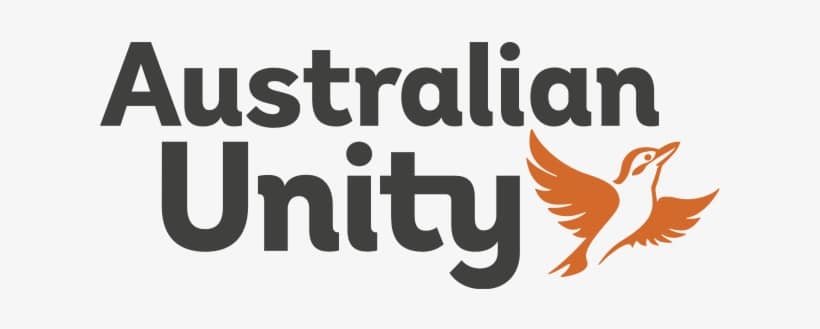Home > Health Insurance > Health Insurance For Under 30s
Health Insurance For Under 30s
Compare health insurance options for under 30s through Savvy today.
Author
Savvy Editorial TeamFact checked



We’ve partnered with Compare Club to bring you a range of health insurance policies to help you compare them side by side.
You may have been covered under a family health insurance policy for most of your life, but are now looking for your own health cover. If so, you can compare options for health insurance as a young person aged under 30 here through Savvy.
You can consider different policies available from a panel of leading Australian health insurers and compare them side-by-side to see if they offer the cover you’re looking for. Get your health insurance needs sorted through Savvy today.
What health insurance options are there for under 30s?
Even if you’re still young, fit and healthy or aged under 25, there are plenty of reasons to look at private health insurance before you reach the age of 31. Up until this time, you may have been covered under a family health policy taken out by your parents. However, if you’re no longer living at home or considered a dependant, it’s time to consider your own health insurance policy.
There are three main types of health insurance you can choose from. You can either buy each type separately or, more commonly, as a package. They are:
- Hospital cover – this can help you pay for the cost of being treated as a private patient, either in a public, or private hospital. It can cover some of the costs of hospital admission, such as the cost of a private room (if available), in-patient doctor’s and surgeon’s fees, any tests undertaken while you’re an in-patient and medications supplied to you while you’re in hospital. You can choose from four levels of cover: basic, bronze, silver and gold. A basic hospital policy is the cheapest form of health insurance you can take out if you wish to avoid paying the Medicare Levy Surcharge, which is an additional tax you’ll have to pay if you earn over $90,000 p.a. as a single and don’t have any private health insurance. The best health insurance coverage for you will be a policy that offers the most suitable inclusions for your needs at the most affordable price.
- Extras cover – this can help pay for your healthcare in areas that aren’t subsidised by Medicare, such as dental, physiotherapy and chiropractic services. There are also different levels of cover available, ranging from cheaper policies with less cover to more expensive offers which provide comprehensive coverage. Again, the best policy for you will depend on your current health needs and which healthcare services you regularly use.
- Ambulance cover – as its name suggests, this insurance helps with the cost of being transported to hospital. If you don’t have ambulance cover and live in a state where it isn’t free, a ride to hospital in an ambulance could end up costing thousands of dollars.
How long can I stay on a family health insurance policy?
This will vary according to which health fund provider your parents have their family policy with. The Australian Government changed the rules in 2021 so that young people who are still dependents and living at home can stay on a family policy up to a maximum age of 31, provided they satisfy the required eligibility criteria. However, it isn’t compulsory for health insurers to allow dependents to stay on their parents’ policy for that long, so some still have a maximum age of 25 or lower.
You can compare the cost of various health insurance policies in one place through Savvy. Get started by filling out a simple online form and consider offers from a panel of leading insurers today.
Is there any government assistance to help those under 30 with the cost of health insurance?
There are three financial incentives which may help young people aged under 30 afford their own health insurance. These are:
Private Health Insurance Rebate
You may be entitled to a private health insurance rebate if you have adequate private health insurance, although this depends on your income. For government purposes, an ‘adequate’ policy is a hospital cover policy for singles with an excess of up to $750. This rebate is a percentage of the premiums you pay for your health insurance. For singles:
- If you earn under $90,000, your rebate percentage will be 24.60%*
- If you earn between $90,001 and $105,000, your rebate percentage will be 16.40%*
- If you earn between $105,001 and $140,000, your rebate percentage will be 8.20%*
- If you earn $140,001 or more, you aren't entitled to a private health insurance rebate*
You can either claim this rebate back as a lump sum at tax time or from your health fund in the form of reduced premiums across the year.
Age-based premium reductions
If you’re aged under 31, you may be able to access an age-based reduction in the cost of your private health insurance premiums through some providers. This reduction is 2% for each year you have a hospital cover policy under the age of 30, capped at a maximum of 10%. For example, if you’re 27 when you first take out a hospital cover policy, you may be able to purchase it 6% cheaper than someone aged in their 40s (three years under the age of 30 multiplied by 2% per year). This discount may stand until you reach 41.
Reduction in Medicare Levy for low-income earners
If you’re still studying and only working part-time or a few hours a week, you may be entitled to a reduction in the amount of Medicare Levy you have to pay. Almost all income earners in Australia have to pay a 2% Medicare Levy. Your employer will usually take an amount out of each payslip to cover the cost of the Medicare Levy. However, if you're a low income-earner, you may not have to pay the Levy or the amount you have to pay may be reduced.
If you’re single and earning less than $23,365, you don't have to pay the Medicare Levy. If you earn between $23,365 and $29,207, you’ll be entitled to a reduction in the amount you’re required to pay, which the ATO will work out for you at tax time*.
*All figures are correct as of March 2023 but subject to change.
Types of health insurance
This can help you pay for medical treatment if you need to be admitted to hospital. It can help cover the cost of your admission or accommodation and the fees charged by doctors, surgeons and anaesthetists. It can also cover other costs associated with a stay in a private hospital.
This helps cover the costs of health care treatments outside a hospital setting which aren’t covered by Medicare. This can include major and minor dental treatment, orthodontics, hearing aids, physiotherapy, glasses, contact lenses and podiatry (in most cases with annual limits).
This is a standard health insurance policy designed for a single person, rather than being tailored to cater to the needs of a couple or family. It may include hospital cover plus extras, or either of these types of insurance on their own, depending on what you're after for your health cover.
A family health insurance policy is designed for a family unit including dependent children who may reach up to 31 years of age with some insurers. It offers private health insurance suitable for the whole family and may include shared limits for all members included in your policy.
A health insurance policy aimed at seniors is designed to appeal to people who are in the second half of their life. These are often specific Silver Plus policies that offer the same cover as other health insurance policies, with the exception that pregnancy and childbirth cover may not be included.
Visitors who are in Australia on a temporary basis for travel, work or study may be able to take out Overseas Visitors Health Cover (OVHC). Many visas issued in Australia come with a requirement to take out this type of insurance, which covers visitors who may not be covered by Medicare.
Ambulance cover is generally available either packaged into your private health insurance or on its own as a separate policy or subscription. By having this protection, you could be covered for all eligible ambulance travel in Australia (subject to your insurer's terms and conditions).
The cheapest and most barebones form of private hospital insurance, this can include cover for rehab, in-hospital psychiatric services and palliative care. Having this policy will enable you to avoid paying the Medicare Levy Surcharge (MLS) and Lifetime Health Cover (LHC) loading.
Bronze hospital cover is a step up from basic insurance, including 18 further clinical categories such as ear, nose and throat, bone, joint and muscle, digestive system, joint reconstructions, gynaecology and chemotherapy, radiotherapy and immunotherapy for cancer.
Silver hospital cover is the second-most expensive type of policy and offers the second-most clinical categories. On top of what's offered by basic and bronze cover, it also includes heart and vascular system, lung and chest, blood, hearing device implantation and dental surgery.
The highest level of private hospital insurance available in Australia, gold policies can offer cover for pregnancy and birth, weight loss surgery, assisted reproductive services and insulin pumps on top of all the categories provided by silver, bronze and basic hospital insurance.
Why compare health insurance through Savvy?
100% free service
Our comparison tool doesn’t cost you a cent, allowing anyone to compare offers from trusted insurers around Australia for free.
Compare policies online in one place
You can consider the inclusions, premiums, benefits and other key factors easily with us, whether you’re at home or on the go.
Trusted insurers
Considering offers from trusted insurance providers can help give you peace of mind that you’re comparing high-quality policies.
Frequently asked questions about health insurance for under 30s
If you don’t have hospital cover on July 1 after you turn 31, you may have to pay the Lifetime Health Cover (LHC) loading on any future hospital policy you choose to purchase, which is an additional 2% on top of the cost of your premiums for each year you’re aged over 31 without eligible hospital cover. This loading is capped at a maximum of 70% and will stay on your premiums until you have private health cover for ten continuous years.
Many health funds will allow you to suspend your health cover if you intend to be overseas for travel or study. In some cases, the suspension can last for up to two years if you’re going to be overseas for this length of time. However, it’s important to check with your insurer to find out what their requirements are.
No – some health funds do bundle ambulance cover with their hospital cover policies, while others may offer it with an extras policy. Alternatively, you may also be able to buy standalone ambulance cover through your insurer or directly from state-based ambulance services, such as St. Johns Ambulance.
Australia’s Medicare system provides free medical treatment in a public hospital if you have an accident and require emergency treatment. However, if you require non-urgent medical treatment, such as the repair of a cruciate ligament after a sporting injury, there can be long public hospital waiting lists to get treatment. Having appropriate private health insurance may help you avoid such waiting lists by giving you affordable access to private hospitals.
Helpful health insurance guides
Looking for health insurance to cover your condition or treatment?
Read one of our helpful guides on a range of different ailments and potential hospital or extras treatments to help you find out if they're covered.
Disclaimer:
Savvy is partnered with Compare Club Australia Pty Ltd (AFS representative number 001279036) of Alternative Media Pty Ltd (AFS License number 486326) to provide readers with a variety of health insurance policies to compare. Savvy earns a commission from Compare Club each time a customer buys a health insurance policy via our website. We don’t arrange for products to be purchased from these brands directly, as all purchases are conducted via Compare Club.
Savvy’s comparison service is provided by Compare Club. Compare Club compares selected products from a panel of trusted insurers and does not compare all products in the market.
Any advice presented above or on other pages is general in nature and doesn’t consider your personal or business objectives, needs or finances. It’s always important to consider whether advice is suitable for you before purchasing an insurance policy.
For any further information on the variety of insurers compared by Compare Club or how their business works, you can read their Financial Services Guide.










